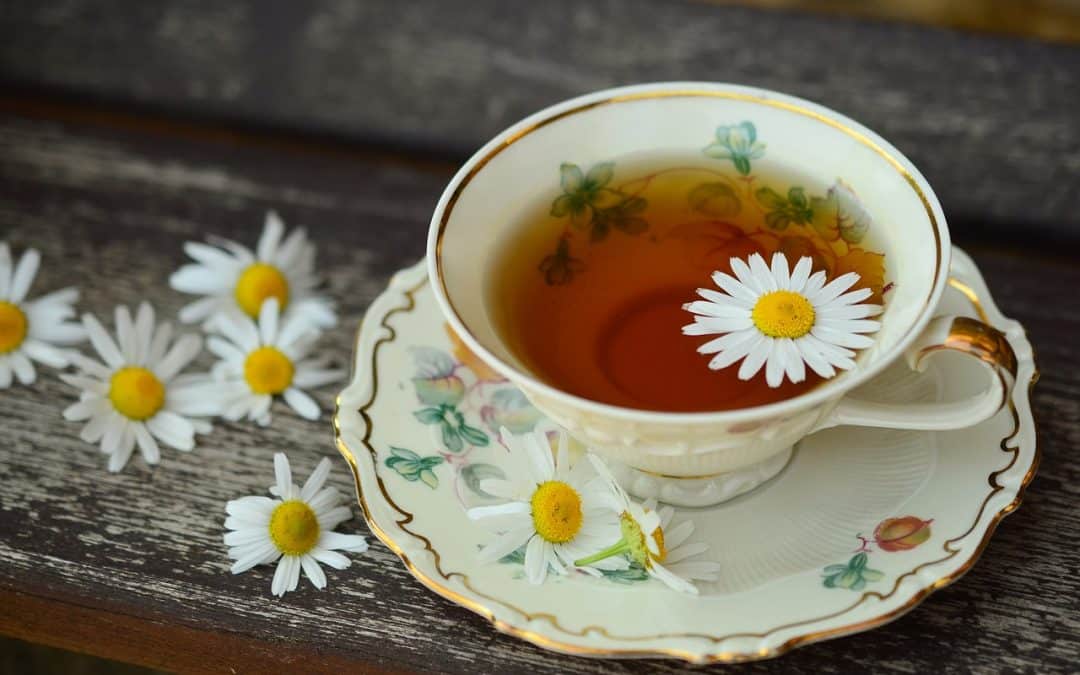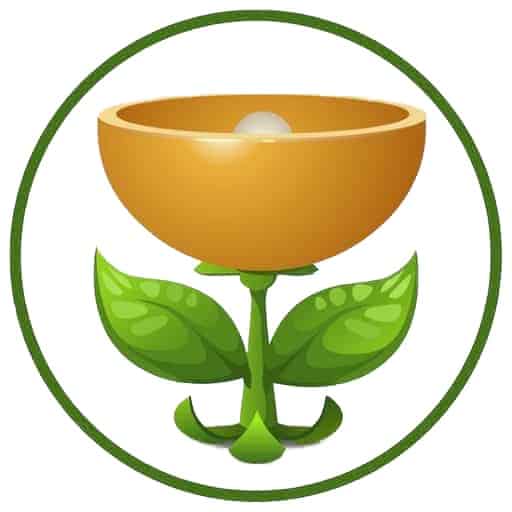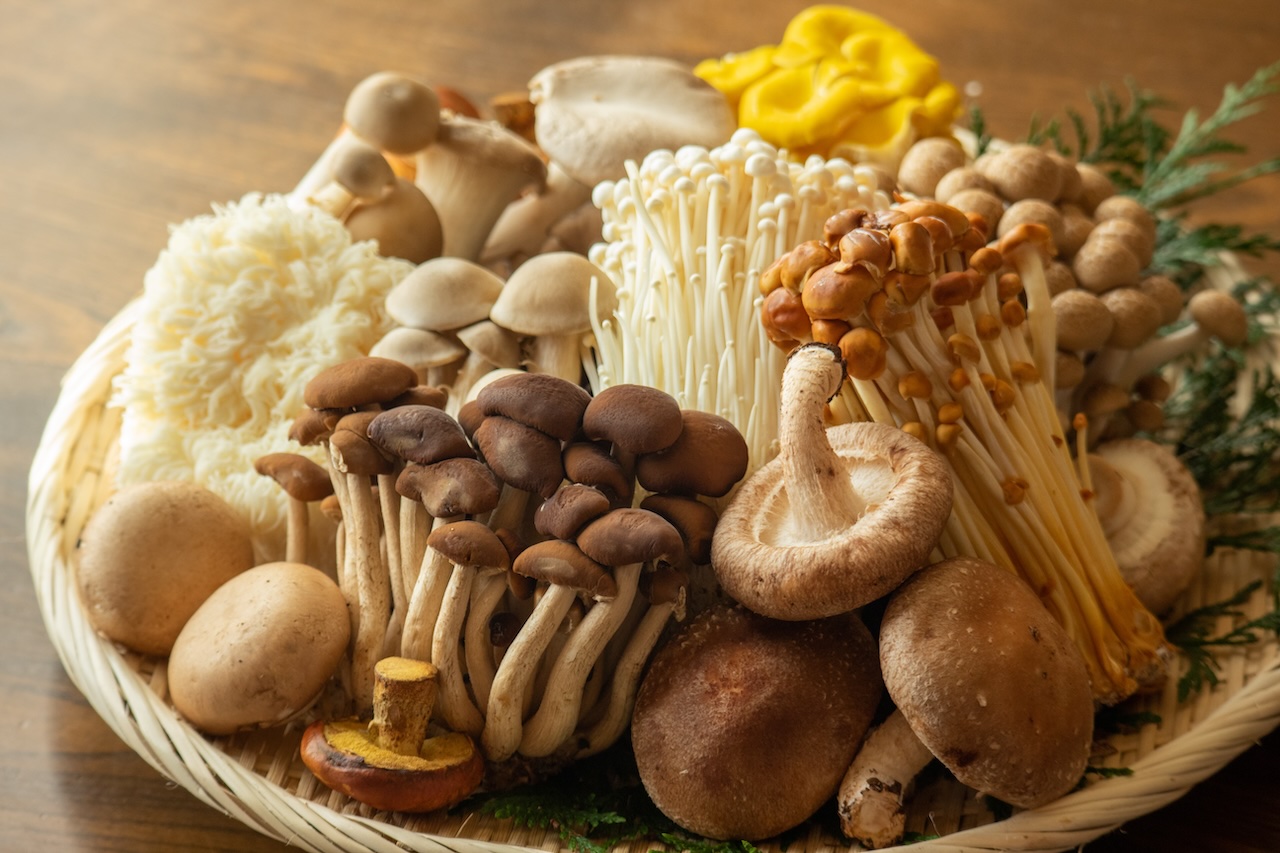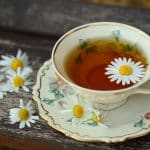
5 Calming Herbal Teas – Slow Down and Enjoy Life
The stresses of daily life can sure take a toll.
Sometimes I just need to take a break and reboot my mind back to factory settings. Whether it’s taking a mental break, calming my frazzled nerves, or getting some much needed sleep, a nice cup of the right tea can go a long way to setting me straight again.
Here are some of my favorites when I need a break from this wacky world.
1. Chamomile Tea
One of my go-to gentle calming teas has always been chamomile. Those pretty little daisy-like flowers not only help to calm your nerves and reduce stress, but they can also help to treat insomnia. A cup of chamomile tea before bed has gotten me to sleep on more than one occasion.
Uses: Calming jangled nerves. Insomnia – drink before bed.
How to prepare:
Fresh chamomile: Add chamomile flowers into a pot of freshly boiled water (not boiling) and steep for 5 minutes. Strain before serving.
Dry chamomile: 3-4 tablespoons of dried flowers in 8 ounces of freshly boiled water (not boiling). Steep for 5 minutes. Strain before serving.
Chamomile kind of tastes like fragrant hay to me. If I’m already agitated it’s not going to help calm me down if I’m bumming out on the flavor – lol! So I add a ½ teaspoon of agave sweetener, or 1-teaspoon honey. With a little sweetness everything stays lovely. I pretty much do this with all of them actually.
2. Lemon Balm Tea
Lemon Balm has the reputation of relaxing the body without causing drowsiness. Lemon Balm reduces a stress hormone called cortisol so it’s also very helpful in elevating the mood. Lemon Balm is a member of the mint family so there is a touch of mint in addition to it’s lemony scent and flavor.
Uses: Relaxing the body without drowsiness. Lifting one’s mood.
How to Prepare:
Fresh Lemon Balm: 2 Tablespoons fresh lemon balm in 6oz of freshly boiled water. Steep 5 minutes. Strain before drinking.
Dried Lemon Balm: 1 tablespoon dried lemon balm in 6oz of freshly boiled water. Steep 5 minutes. Strain before drinking.
3. Passion Flower Tea
Another excellent natural remedy for anxiety and stress is Passion Flower tea. It is a gentle anti-anxiety and mildly sedative herb that can be used to induce a good night’s sleep. Passion Flower is known to be a muscle relaxant as well as containing antioxidant and anti-inflammatory properties.
NOTE: Pregnant women or nursing mothers should not take this herb. Also, those on blood pressure medication should not consume this herb as it can lower blood pressure to dangerous levels. Do not take if using other sedatives.
Uses: Anti-anxiety, muscle relaxant, and sleep aid.
How to Prepare:
Dried, Cut Passion Flower: 1 tablespoon dried passionflower in 6oz of freshly boiled water. Steep 10 minutes. Strain before drinking.
4. Peppermint Tea
I Love Peppermint! There’s nothing like peppermint when you’re feeling stressed out. Because it has a relaxing scent and no caffeine, it makes a very nice tea to drink before bed.
How to Prepare:
Fresh Peppermint: 2 Tablespoons fresh peppermint in 6oz of freshly boiled water. Steep 5 minutes. Strain before drinking.
Dried Peppermint: 1 tablespoon dried peppermint in 6oz of freshly boiled water. Steep 5 minutes. Strain before drinking.
5. Rose Tea
Roses and Rosebuds have been used in tea and medicines for thousands of years. In addition to Rose’s long list of benefits it also helps to reduce stress and anxiety. The calming effects of rose tea are excellent for helping you to sleep well.
Uses: Anti-anxiety and sleep aid.
How to Prepare:
Dried Rose Petals: 1 tablespoon dried rose petals in 6oz of freshly boiled water. Steep 10 minutes. Strain before drinking.
Fresh Rose Petals: Wash petals thoroughly before adding them to boiling water. Reduce heat and steep for 10 minutes until petals turn dark. Strain before drinking.
Bottom Line
As with any relaxing moment you must savor it. Don’t just chug these teas – sip them, enjoy the fragrance, the warmth, and allow yourself to slip into a soothing moment. Put on some meditative music, write in your journal, or just stare out the window.
No matter what you do, be sure to create a space between you and the rest of the world.
Keep your focus on the positive and in no time you’ll begin to feel more refreshed and ready to take on the next challenge with a clearer head and a much better perspective.
Views: 77


